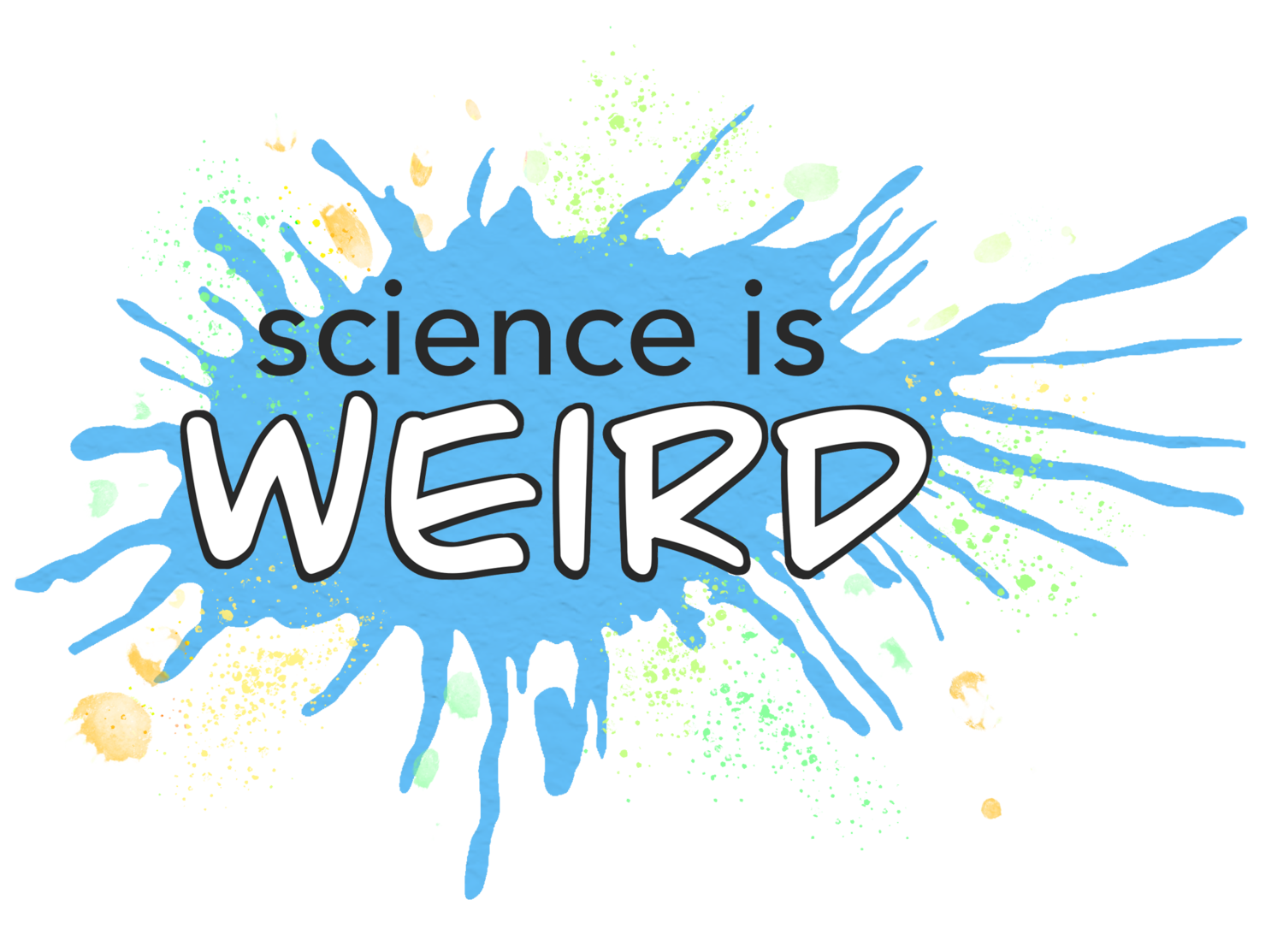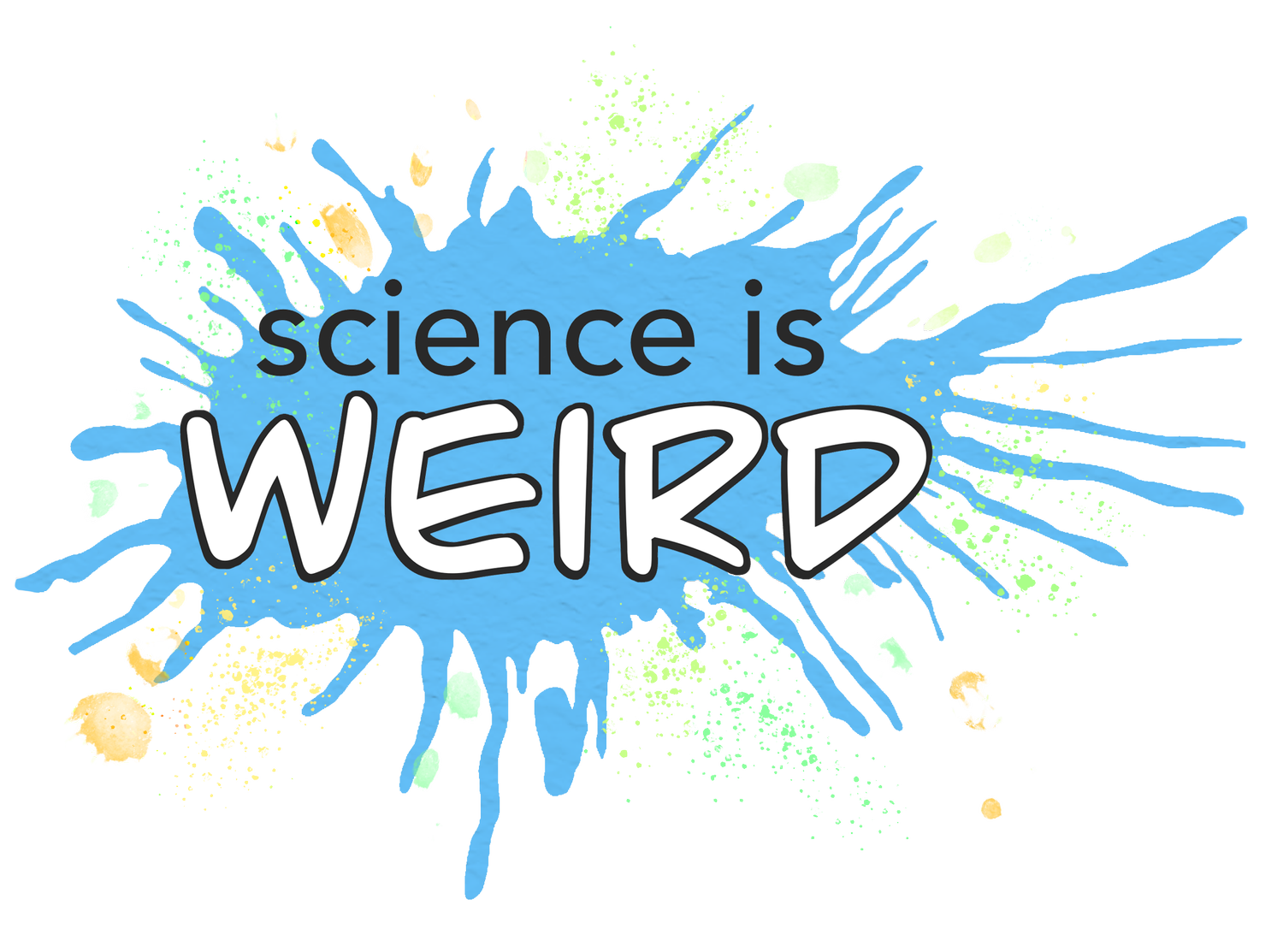Bodies are Weird
Oh boy oh boy oh puberty
It sucks to grow up. We watch helplessly as the bodies we thought we knew morph into their strange, new, adult form.
It can be confusing and disturbing. But in reality, there are reasons behind these changes.
The week of June 5 – June 9, 2023, we’ll be teaching a special five-day long, advanced Science is WEIRD course — Bodies are Weird.
Its goal: to help kids ages 9 and up understand and appreciate the logic of their changing bodies.
Why are we teaching this?
We’ve had a lot of parents ask us to design a “sex ed” class. And we certainly understand the need — most of us have adolescent kids ourselves.
What’s more, we’ve all had terrible experiences in school “sex ed” classes. A common experience:
Student: Why is my body ___?
Teacher: An excellent question! That happens to everyone.
Student: Sure, but why?
Teacher: It’s totally natural!
Student: But why does it happen to everyone?
Teacher: DOES ANYONE ELSE HAVE A QUESTION?
We figured the world needed a class on human development that actually answered why.
When’s the class?
It’ll be at the start of our summer camp schedule:
June 5, 6, 7, 8, and 9
Monday through Friday
We’ll have two sessions — one in the morning, and one in the afternoon.
Morning class: 12pm Eastern / 9am Pacific
Afternoon class: 4pm Eastern / 1pm Pacific
Each lesson will be 80–90 minutes long.
What’s the course about, big-picture?
This is our course about biological sex, which is more fascinating than most people know.
Biological sex isn’t a single binary, or even a smooth spectrum — it’s a set of switches that are flipped (or not) at different stages in our development.
Want an example?
“Everyone knows” that there are two sex chromosomes (X and Y) and that women have XX and men have XY. But it’s not as simple as that. Some people have XXY, XYY, or even just a single X! Can you guess how their bodies develop?
And “everyone knows” that there are a few hormones that influence how our bodies develop (like estrogen & testosterone). But how do those relate to chromosomes? And why do hormones do anything at all? What’s the reason for biological sex?
To really understand anything about puberty, you have to go pretty deep — into chemistry, and the evolution of mammals.
Want to learn more about this topic yourself by peeking over our shoulders? We won’t tell! Take a look at the “resources” list at the bottom of this page.
What’s the format?
Each class will be a small group of about 15 kids. (This will allow students to ask a lot of questions.) But this can be an awkward topic — so to help kids feel more confident, we’ll have them keep their cameras off, and give them new, anonymous codenames.
We always try to offer a webinar version of our courses, but we regret that we’re not able to do a webinar version at this time. If you need a discount to take this class, please let us know!
As always, lessons will be oriented around the class solving riddles — this won’t be a dry recitation of facts.
Who can sign up?
Because of the personal nature of this topic, we’re limiting it to kids who are at least 9 years old.
Families who are currently taking Science is WEIRD classes will have priority registration.
(We’ll send you the link to ask questions after you’ve signed up, if you don’t have it already.)
Questions, answers
Q: Are you going to be talking about sex, as in, sexual intercourse?
We definitely won’t be avoiding it! (Evolution is all about sex.) But this is a class about adolescence, not the experience, risks, or ethics of sex. (If there’s a demand for it, we might offer a more sex-focused “sex ed” class in the future.)
Q: If kids understand their bodies through evolution, will they objectify themselves?
This is a danger, and we’ve talked to mental-health specialists about it. Our conclusion is that people already objectify themselves a dozen times a day: understanding why evolution has shaped our bodies can help kids see beyond the messages they get from culture, and love their bodies for what they are.
Q: My kid is gender non-conforming. Is this class for them?
We hope it’s especially for them: because they navigate their development with more awareness than most, we think understanding physiology can be particularly useful.
That said, this is going to be a class about bodies, not minds (biological sex, not gender), so we won’t talk much about it directly.
Q: How careful are you going to be with delineating terms like “female” vs. “woman”, and “male” vs. “man”?
Because this is a class about biological sex, rather than perceived gender, terminology won’t be a main focus. We’ll do our best to be clear what we’re talking about — if you’re looking for a class that is strict on terminology, this class might not be for you.
Q: Our family is fairly conservative. Is this class for us?
That choice is, of course, up to your family. But know that we take our “big inclusivity” philosophy very seriously: we work hard to make our classes for as many cultures as possible.
Q: Isn’t the title of the class sort of… embarrassing?
Precisely! Calling attention to embarrassment is a way to rob it of its power. (Trying to ignore how embarrassing this topic is, in our experience, only heightens it.)
What we’ll cover
Lesson 1: THE SIMILARITIES (anatomy)
Internally, men & women are different — how, and why? What happens when a woman has a period? What happens, physically, when a man ejaculates? Why do testicles descend (and why were they “up” in the first place)? In this lesson, we’ll draw two simple maps of the human reproductive system — and possibly spot their deep (and shocking!) similarity.
Lesson 2: THE DIFFERENCES (endocrinology)
Every embryo starts the same, and ends up with a sex. How the heck does this happen? And what’s up with “X” and “Y” chromosomes? In this lesson, we’ll understand the diverse differences between the sexes — breasts, muscle mass, and more — by understanding the surprisingly simple way sexes differ.
Lesson 3: THE BIG PICTURE (evolution)
Did evolution create puberty to punish us? Why do we go through adolescence at all — why weren’t we born as tiny adults? In this lesson, we’ll understand the logic of adolescence, and will be able to make clear sense of why voices drop, moods swing, hair grows everywhere, and relationships with parents gets tense. We’ll also see how other animals go through adolescence.
Lesson 4: PIMPLES (microbiology)
Why do adults stink? Why do pimples even exist? By the end of this lesson, we’ll understand why these skin problems exist, and have a clearer understanding of how to stop them.
Resources
Because this can be a sensitive topic, we know you might want to see our research. Here are four books we’ve found particularly helpful:
1
I, Mammal: The Story of What Makes Us Mammals, by Liam Drew
2
Mom Genes: Inside the New Science of Our Maternal Instinct, by Abigail Tucker
3
Testosterone Rex: Myths of Sex, Science, and Society, by Cordelia Fine
4
T: The Story of Testosterone, the Hormone that Dominates and Divides Us, by Carole Hooven
A note: the last two authors mostly agree facts, but disagree (vehemently!) about how to interpret those facts. We recommend their books as a pair.








